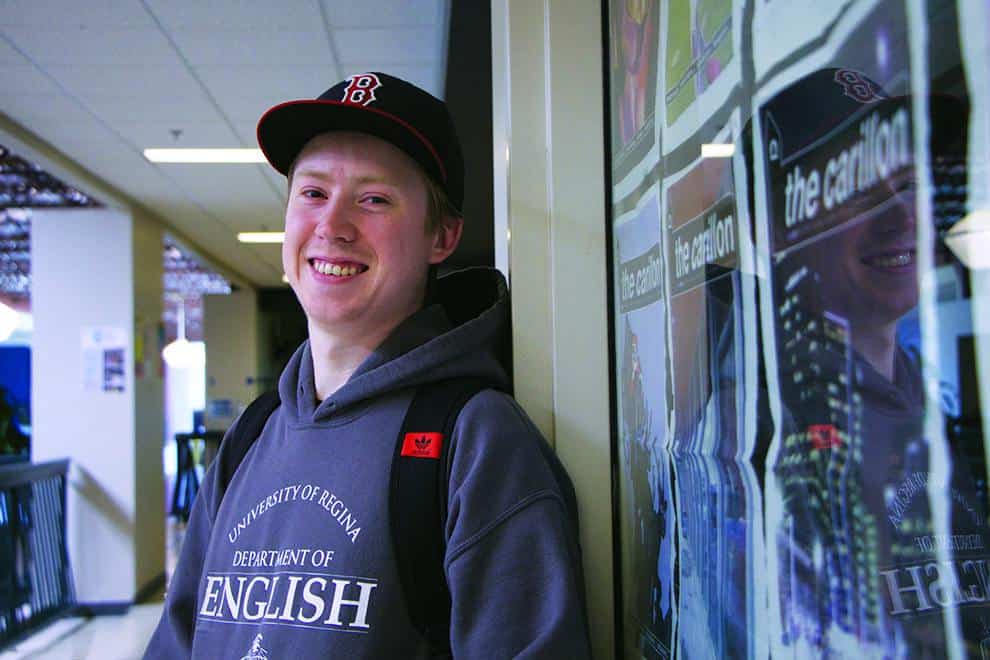Tuition on the rise again

Yet more damage looms for students’ pocketbooks at the U of R
Author: John Loeppky and John Kapp – Sports Editor and Arts & Culture Editor
Undergraduate tuition at the University of Regina is increasing 3.8-3.9 per cent in time for the 2015-2016 academic year. Tuition rose 3.8 per cent for most undergraduates over the 2014-2015 year as well. The year before, that increase was even higher, at 4.4 per cent. In the same vein, 2012-2013 saw an increase of 4 per cent, with the two previous years – 2010 and 2011 – seeing rises of 3 and 5 per cent, respectively. Tuition has risen steadily each year since the cancelation of the last tuition freeze at the university, which ended in 2009.
University of Regina Students’ Union president Devon Peters does not believe that tuition cuts are the only answer students should be seeking. While students may be unhappy about the increase, Peters believes it is symptomatic of larger societal problems.
“Tuition hikes are a really complex piece. I’d love to just say, ‘tuition is bad, let’s fight all of them.’ But, the symptoms of this one are in a lot of places. We have to ask ourselves, ‘if tuition is at an all-time high, why is it that enrolment is also at an all-time high?’ Part of the answer to that is the wage differential between university graduates and non-university graduates is at an all-time high. As long as that trend continues, it is completely reasonable that universities are super-expensive.”
According to Peters, inequality is the factor most central to this issue. Simply reducing tuition will not have the lasting impact needed by future students.
“Our society is more unequal than ever. There are more losers than ever, which is tragic. It’s a concerning trend and we are seeing it across Canada. That in itself is symptomatic of so many other things. Take a group like Notley’s NDP with a promise to raise minimum wage to fifteen dollars an hour, knowing full-well the minimum living wage in Calgary is seventeen dollars an hour. It’s not fixing the problem.”
Education student Brooklyn Orban is puzzled by the annual tuition increases foisted onto the U of R’s students.
“It frustrates me to see such a high increase in tuition, especially since it has been going up substantially over the last couple of years. In comparison, the amount we receive from the government for student loans has changed little since I started university in 2012. Wages have also not increased, making it harder for students to afford an education. To compare, Mexico gives nearly free post-secondary education to students who are admitted. It’s crazy to think that a so-called developing country can supply scholarships and nearly free post-secondary education when in Canadian institutions, they feel the need to raise tuition by insane amounts.”
Peters believes the increasing cost of higher education is part of a larger network of social issues to be faced.
“Tuition is a symptom of inequality. Minimum wages being too low is a symptom of inequality. In the grand scheme of things, the university has done a good job of keeping that idea in their head. If you look at the amount of scholarships we give, per dollar we are the second highest in Canada.”
He does not believe tuition cuts should be the watchword for students upset with the school’s budgeting. While tuition has increased, it has had a redistributive function.
“Tuition cuts, as a policy idea tend to benefit the upper-middle classes rather than working or lower-middle class people. There are not as many needs-based scholarships as we would like to see, so that is something we are working on. It’s a nuanced thing, at the end of the day.”
Peters is satisfied with the work being done by the university and wishes the provincial government were more supportive of its post-secondary institutions.
“I am happy with what the university is doing, bearing in mind they are getting the short end of the stick. They’re getting the worst budgets every single year. Until our government recognizes that, whichever one it ends up being – there is no end in sight to these budgets.”
The university’s 2015/2016 comprehensive budget plan, available on their website, provides, at the beginning of its executive summary, the institution’s rationale for a tuition increase.
“…the 2015-16 Saskatchewan provincial budget presented the University of Regina with a significant challenge. We will have fewer provincial dollars – about $2.3 million fewer in operating funds and as much as $6.2 million fewer in sustaining capital – than we requested to maintain our current operations as outlined in the Operations Forecast 2015-16 submitted to the Government last fall.
The challenges are amplified by calls for investment from many parts of campus to address enrolment growth, increase competitiveness, address deferred maintenance problems, fund more graduate student financial assistance, and provide more support for student success, research impact, community connections, sustainability and Indigenization.”
Further to the challenges presented by the lack of funding, President Vianne Timmons is quoted as saying in a memo dated Mar. 18, that “… the university will be required to make some difficult decision as we work to balance our budget while making progress on the priorities identified in our new strategic plan.”
The University of Regina is increasing tuition for undergraduates by at least 3.8 per cent this year; after seven consecutive years of tuition increases, one cannot help but wonder just how much more financial strain students can bear. Continual increases, that as some have noted are outpacing the rate of inflation, put undue stress on a student population that has been weathering damages to their pocketbook since at least 2009. With no sign of slowing down, tuition increases will likely continue to add up and impact students as the Saskatchewan economy attempts to balance itself out without the abundance of natural resource revenue it has enjoyed in the past.










